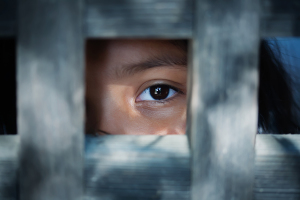Our Children, Our Future
If it is true that "children are our future," then we in the West have reason to be concerned about our future. In recent decades the fertility rate in Western nations has plummeted; men and women are having fewer children, and if the current trend continues, Western civilization will commit a slow suicide.
The statistics are striking. Phillip Longman recently reported that, "Today, the average woman in the world bears half as many children as did her counterpart in 1972. No industrialized country still produces enough children to sustain its population over time, or to prevent rapid population aging." More specifically, Eric Cohen said, "Since the 1950's, the total fertility rate (TFR) in Europe has fallen from 2.7 to 1.38—an astounding 34 percent below the replacement rate of 2.1, which is the average number of children per couple needed for a society to sustain itself. Japan's fertility rate is 1.32, and its average age is already forty-two years and climbing. (The [world average], by comparison, is in the mid-twenties.) A large number of nations, including Russia, Spain, Italy, South Korea, and the Czech Republic, have TFR's between 1.0 and 1.3; some of these nations (most notably Russia) are already experiencing rapid population decline." Incidentally, there is an exception to the rule when it comes to plunging birth rates in Europe: Muslims continue to have about three times more children than non-Muslim Europeans. If demography is destiny, what does this fact indicate about Europe's future?
In the United States there is also reason to be concerned, though the situation is not as dire as it is across Europe. Our birthrate hovers around the replacement rate of 2.1, which means that our population will not decline, though it isn't growing either. When the statistics are broken down by state, one finds a clear difference between "red states" and "blue states". Typically the red states are more fecund, while the blue states have birthrates that more closely resemble the European norm. In a recent Wall Street Journal article, Arthur C. Brooks warned liberals that unless they reproduce, they faced electoral doom: "According to the 2004 General Social Survey, if you picked 100 unrelated politically liberal adults at random, you would find that they had, between them, 147 children. If you picked 100 conservatives, you would find 208 kids. That's a "fertility gap" of 41%. Given that about 80% of people with an identifiable party preference grow up to vote the same way as their parents, this gap translates into lots more little Republicans than little Democrats to vote in future elections."
Not only is there a gap between liberals and conservatives, but there is also a gap between those who practice a religious faith, and those who do not. Longman found that, "Today there is a strong correlation between religious conviction and high fertility. In the United States, for example, fully 47 percent of people who attend church weekly say that the ideal family size is three or more children, as compared to only 27 percent of those who seldom attend church."
All of these statistics add up to an alarming reality: Western societies are getting older, and they are not producing enough children to replace themselves, meaning with each generation there will be fewer young people—fewer productive workers—supporting a growing number of dependent elderly. This will place an incredible economic strain on the young, especially in nations whose governments promise expensive welfare entitlements. It will also lead to an economic slowdown: grayer societies are less innovative, more risk-adverse, and have a smaller base of consumers.
What is driving this decline in fertility? Why is it that across the Western world, where the average citizen enjoys more wealth and comfort than ever before, fewer people are inclined to have children? Of course, there are many factors affecting this trend, including the popularity of abortion and contraception and the number of women entering the workforce and delaying marriage. But, in addition to all this, there has been a disturbing shift in the way our culture views children. Increasingly in our materialistic and consumeristic society, children are viewed more as liabilities than assets. They are often seen as little more than expensive accessories: mouths to feed and college tuitions to pay, a drag on a lifestyle devoted to self-actualization and self-indulgence.
Contemporary culture's view of children contrasts sharply with that of Scripture. The Bible views children as a blessing rather than a curse. The Psalmist describes children as a "gift of the Lord" and the fruit of the womb as a "reward". "Like arrows in the hands of a warrior, so are the children of one's youth. How blessed is the man whose quiver is full of them." (Ps 127:3-5 NASB) In Scripture we find childless couples pleading again and again to God for the joy of children. In the post-Christian West, however, we have become so self-absorbed that, instead of seeing children as sources of love and joy, blessings to be desired, we see them as parasites, draining us of our income. Many feel that their money is better spent buying bigger houses or faster boats than supporting more demanding children.
All of this is evidence of a loss of hope. Many Westerners have no faith in the future; they believe that all we have is the existential now, so why bother? Eat, drink, and be merry for tomorrow we die! Why take on the pressure, the responsibility of parenting, when you can live fast and die rich? Without faith in God, we have lost faith in tomorrow. We are inspired to do little more than seek fleeting pleasures as we await our inevitable deaths.
This short-run vision of life is not the mentality that produces healthy, successful nations equipped to face the challenges set before them. It is the mentality of a civilization in decline. As Christians, it is our responsibility to be steadfast witnesses to the power of hope. While we do not believe that this world will ever be perfect, we do believe that life is worth living and that the future is bright. As Saint Augustine said, we are an Easter people, and Alleluia is our song. We worship the first born among the dead; we have no reason to despair. Therefore, perhaps one of the greatest services we can perform is to have children, to be fruitful and multiply, knowing that each and every child is a testament to the power of hope and the beauty of tomorrow.
___________________________________________________
Ken Connor is Chairman of the Center for a Just Society in Washington, DC and a nationally recognized trial lawyer who represented Governor Jeb Bush in the Terri Schiavo case. Connor was formally President of the Family Research Council, Chairman of the Board of CareNet, and Vice Chairman of Americans United for Life. For more articles and resources from Mr. Connor and the Center for a Just Society, go to www.ajustsociety.org. Your feedback is welcome; please email info@ajustsociety.org.




























